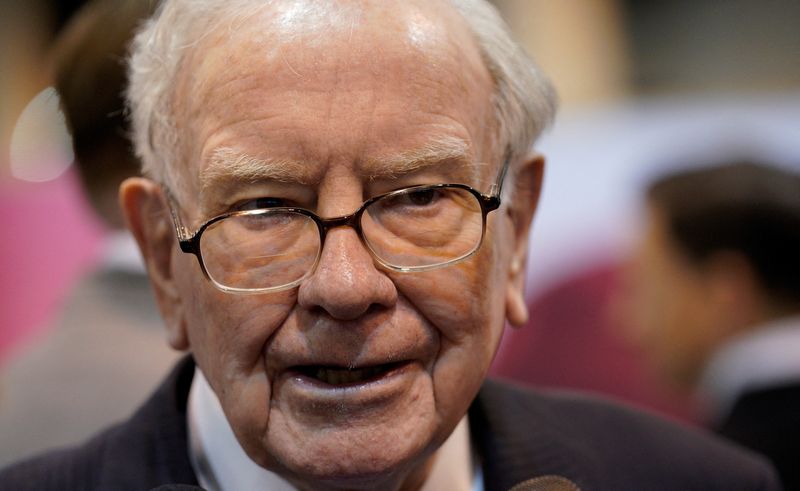By Jonathan Stempel
TOKYO/NEW YORK (Reuters) -Warren Buffett's Berkshire Hathaway (NYSE:BRKa) Inc has increased its stakes in Japan's five largest trading houses to 7.4%, and the billionaire investor said he may invest more in the country.
Buffett, 92, said in an interview with Nikkei that he was "very proud" of the investments and would meet with the trading houses this week to discuss their businesses, perhaps laying the groundwork for doing business together.
The trading houses are Itochu Corp, Marubeni Corp, Mitsubishi Corp, Mitsui & Co and Sumitomo Corp.
Their shares rose 2.1% to 4.6% in Tokyo on Tuesday following the Nikkei interview.
Berkshire had disclosed owning 5% stakes in each company in August 2020 on Buffett's 90th birthday, in investments then worth more than $6 billion. It reported increasing the stakes to more than 6% in November.
"We would love it if any of the five would come to us ever and say, 'We're thinking of doing something very big or we're about to buy something and we would like a partner or whatever,'" Buffett said.
He also said Berkshire does not invest in other Japanese companies, but "there are always a few I'm thinking about."
Known as "sogo shosha," Japanese trading houses trade in a wide variety of materials, products and food, often serving as intermediaries, and provide logistical support.
They are also deeply involved in the real economy in such areas as commodities, shipping and steel.
The business model may have enticed Buffett, who prefers to invest for the long term and avoid businesses he claims not to understand.
"These five companies are a cross section of not only Japan but of the world," Buffett told Nikkei. "They are really so much similar to Berkshire."

Buffett's Omaha, Nebraska-based conglomerate owns dozens of businesses, including the BNSF railroad, Geico auto insurance, and consumer, energy and industrial companies, as well as stocks such as Apple Inc (NASDAQ:AAPL) and Bank of America Corp (NYSE:BAC).
Nikkei also said Berkshire plans to sell more yen-denominated bonds, perhaps foreshadowing more Japanese stock investments.